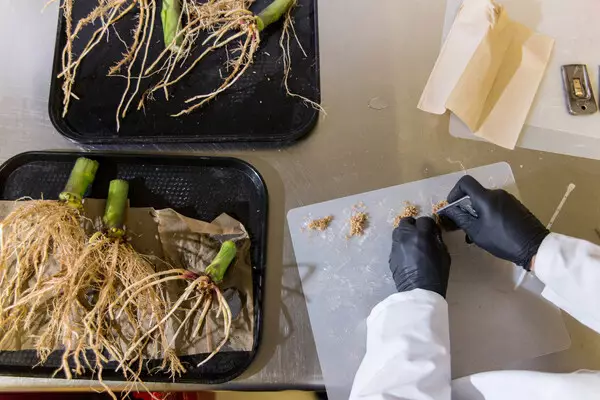TOKYO, Nov. 12, 2024 /PRNewswire/ -- On November 11, 2024, PGYTECH announced the launch of its latest product for the Japanese market, the "Roller Camera Backpack." Designed to make travel more convenient for photographers, this backpack eases the burden of transporting photography equipment and ensures safe storage. It's available for purchase starting at 7:00 PM JST on November 11, 2024, through the official PGYTECH JAPAN website, Amazon.co.jp, and Sekido Online Store at its retail price for ¥46,200 (tax included).
PGYTECH Japan: https://pgytech-japan.com/product/p-cb-180/?prtimes
Versatile 2-in-1 Design
Spacious and Customizable Storage
The Roller Camera Backpack includes customizable partitions, allowing users to switch between camera mode, camera-and-drone mode, and travel mode to suit various needs. With a 30L capacity that can expand to 40L by unzipping the front compartment, there's ample room to store additional gear like gimbals and clothing.
Smooth 360° Mobility with Dual Roller Wheels
The backpack features double roller wheels for stable, all-direction movement.
Built-in Bearings for Noise Reduction: Durable PU wheels with built-in bearings provide smooth and quiet movement.
Removable Wheels: Detachable wheels allow the backpack to meet airline standards and offer up to 8% more storage than typical carry-on luggage.
Enhanced Storage Efficiency with Wide Carrier Handle
Traditional handles, positioned in the center, often compromise storage space and balance. The PGYTECH Roller Camera Backpack's handle is positioned at the back corner, maximizing stability, ease of use, and achieving up to 98% storage efficiency. The handle, adjustable to three heights and made of durable aluminum alloy, offers both strength and a sleek appearance.
Dedicated Pouch for Streamlined Security Checks
The Roller Camera Backpack includes an external digital organizer for batteries and accessories. This pouch, which can be stowed in the side pocket or carried separately as a handbag, organizes small items like mobile chargers and keys, making security checks smoother.
Optimized Compartments for Easy Access
Quality Down to Every Detail Part
About PGYTECH
Founded in 2015, PGYTECH strives to develop professional photography peripherals including camera bags, all-in-one camera kits and supports to deliver excellent products and aftersales service. PGYTECH is driven by technological innovation and, as of October 2023, has acquired over 150 patents, along with recognition from prestigious global awards like the Red Dot Award and IF Design Award, among others. After nearly 10 years of steady growth, PGYTECH has emerged as one of the leading brands in global photography accessories, delivering more efficient and enjoyable shooting experiences to photography enthusiasts in over 100 countries and regions, which makes creation easier.
** The press release content is from PR Newswire. Bastille Post is not involved in its creation. **

PGYTECH Unveils the Latest Roller Camera Backpack in Japan
Findings are the first, peer-reviewed evidence of gene-edited microbes supplying a material proportion of corn farmers' nitrogen in commercial production
BERKELEY, Calif., Nov. 14, 2024 /PRNewswire/ -- Peer-reviewed research published today in Scientific Reports describes a new technology that could revolutionize a century-old approach to providing nitrogen to crops. The study, a collaboration of researchers from the University of Wisconsin-Madison, Purdue University, and Pivot Bio, a leading sustainable agriculture company, presented first-of-its-kind evidence showing how gene-editing enhances microbes' ability to fix atmospheric nitrogen and transfer it to cereal crops.
Using isotopically labeled nitrogen, researchers traced nitrogen in the air to chlorophyll of corn leaves, providing evidence that it was fixed from the air by the gene-edited microbes. Field studies also showed that these microbes could fix and supply nitrogen comparable to up to 40 pounds of synthetic nitrogen fertilizer with similar yields.
Improving the effectiveness of nitrogen fertilizers has been a long-standing challenge. "The core issue," explains Dr. Bruno Basso, a professor of environmental science at Michigan State University, who was not involved in the study, "is that the soil-plant-atmosphere system is extremely complex." Unpredictable weather makes it difficult to match nutrient supply to plants' demand, and to determine precisely how much nitrogen a crop will require and whether the nutrient will remain in the soil. "My research lab has spent years helping farmers, using advanced sensing technology and computer models to help them better understand their fields and use nitrogen fertilizer more efficiently to increase profit and reduce environmental impact, such as nutrient losses to groundwater and greenhouse gas emissions to the atmosphere."
Diazotrophs, special types of bacteria that occur in nature, have a unique ability to turn atmospheric nitrogen gas into ammonium, the building block of amino acids and proteins. This process, commonly known as biological nitrogen fixation (BNF), was the main form of nitrogen nutrition for crops for thousands of years before synthetic nitrogen fertilizer was invented.
"Native soil diazotrophs lose their ability to perform BNF when exposed to high concentrations of nitrogen in the soil for extended periods of time. This is an evolutionary response to conserve energy because BNF is a very energy-intensive process," explains Dr. Jean-Michel Ané, professor of bacteriology and plant and agroecosystem sciences at the University of Wisconsin-Madison, a co-author of the study. "We need to convince these bacteria to maintain high levels of BNF in environments with lots of nitrogen, such as synthetically fertilized soils."
Researchers at Pivot Bio developed gene-edited microbes using non-transgenic methods to enable diazotrophs to continue providing nitrogen to the crop even under high nitrogen conditions. "With the gene edits, we blind microbes to the presence of nitrogen in their surroundings, so they continue to fix ammonium, delivering it directly on the root system," said Dr. Karsten Temme, chief innovation officer and co-founder at Pivot Bio and a co-author of the paper. "We also introduced other edits to ensure the bacteria can transfer the fixed nitrogen to the crop instead of keeping it for itself."
The paper presents evidence of this process happening in the lab and field test plots. It is also the first peer-reviewed paper covering PROVEN® 40, Pivot Bio's second-generation commercial product for corn containing gene-edited nitrogen-fixing microbes.
"Nitrogen fertilizer is arguably the most significant invention of the past century and will be essential to the world's development and food security for the foreseeable future. However, we believe it can be used better," said Dr. Temme. "Pivot Bio's focus is on improving the productivity of farming by increasing the efficiency of nitrogen with our gene-edited microbes and reducing losses of synthetic fertilizer to the environment."
In the field, the researchers used a variety of isotopic experiments to again demonstrate nitrogen fixation, this time under real-world conditions, and quantify the nitrogen levels in the plant. They also collected hundreds of samples from farmers who reduced nitrogen fertilizer rate by 35 to 40 pounds of nitrogen per acre, replacing it with Pivot Bio's PROVEN 40. On average, researchers found plants treated with PROVEN 40 had higher nitrogen levels early in the season and no negative impacts on yield, even though they had received less synthetic fertilizer.
"It is very hard to keep track of nitrogen as it moves from the air to the microbe and then to the plant. We rely on the isotopic signatures of nitrogen atoms coming from the air versus those in the soil," Dr. Ané explains. With these measurements, researchers detected isotopically labeled nitrogen in the chlorophyll of corn leaves in the lab, a sign that microbes supplied that nitrogen to the plant.
"This extensive research is promising because it means that farmers can start reducing nitrogen fertilizer without compromising productivity: a win-win for the farmer and the environment," said Dr. Temme. "This is very exciting because the technology is highly scalable. Our products have already been used on over 13 million acres in the U.S. since their commercial launch five years ago, which translates into real impact."
Dr. Basso agrees. "If this technology continues to improve and deliver more nitrogen to crops, and they show this translates to reductions of environmental pollution and the overall agricultural carbon footprint, it could be a game changer for nitrogen management. The more we replace synthetic fertilizer for more efficient and sustainable sources of nitrogen to support crop yield, the better is for farmers, communities and the environment."
The full paper can be found in Scientific Reports. Founded in 2011, Scientific Reports is an open-access journal from the Nature Portfolio, publishing notable original research across the natural and clinical sciences and known for its rigorous peer review process.
About Pivot Bio
Pivot Bio is a leading sustainable agriculture company delivering to farmers patented crop nutrition technologies that harness the power of nature to reliably and productively grow the food the world needs in the face of increasing volatility. Currently available in North America, and soon in Brazil, the company's products are a breakthrough innovation. They are among the industry's most promising climate solutions. The company's nitrogen is weatherproof, safer to handle, and does not leach or contribute to nitrous oxide emissions. Pivot Bio has been recognized three times by Time magazine on its annual list of best inventions, by Fast Company on its World Changing Ideas and World's 50 Most Innovative Companies lists, by CNBC on its Disruptor 50 list of private companies, by Fortune on its Impact 20 list of startups driving social good and by MIT Tech Review as one of 15 climate tech companies to watch. For more information, visit PivotBio.com.
** The press release content is from PR Newswire. Bastille Post is not involved in its creation. **

Breakthrough Research Presented in Scientific Reports Demonstrates How Gene-Edited Microbes Offer a New Source of Nitrogen to Farmers











